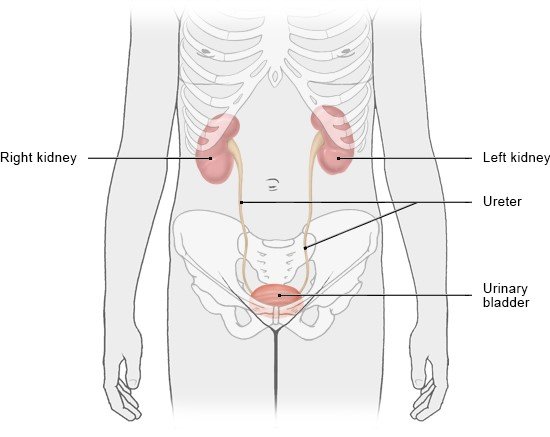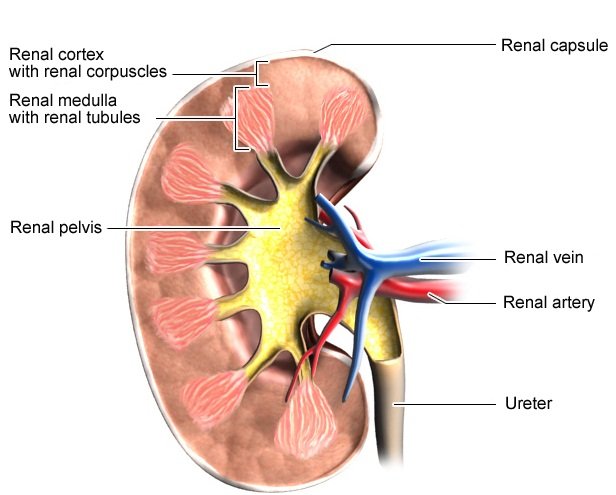The kidneys are our body’s sewage treatment plants: By producing urine that leaves the body, they get rid of waste products, such as urea, that form in the body or that we have consumed in food and drinks. Urea forms when proteins are metabolized (broken down by the body). The body is also able to get rid of medicine, drugs or toxins through urine.
Besides producing urine, the kidneys also have other important tasks. They regulate the body’s water balance by either holding back water or releasing excess water with the urine. When your kidneys hold back water, more fluid enters your blood vessels. The volume of blood increases, and your blood pressure rises. When your kidneys release more water, the volume of blood decreases and your blood pressure falls. There are also special cells in the kidneys that produce the protein renin. Renin has a hormone-like effect that increases blood pressure.
The kidneys also produce two important hormones called erythropoietin and calcitriol. Erythropoietin plays a role in the production of red blood cells. Calcitriol is the active form of vitamin D and regulates things like the amount of calcium in the body.
The body's acid-base balance is also controlled by the kidneys. So the kidneys make sure that the blood doesn’t become too acidic or too alkaline. The body's energy metabolism is influenced by the kidneys as well: If there is too little sugar (glucose) in the blood, the kidneys can make sugar and release it into the bloodstream.
Each kidney has a pyramid-shaped gland “sitting” on it like a small hat, called the adrenal gland. These adrenal glands make several essential hormones, such as cortisol (also known as hydrocortisone).


